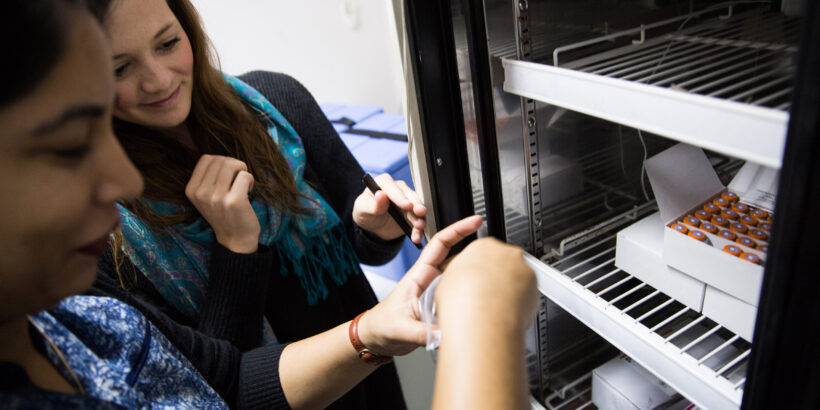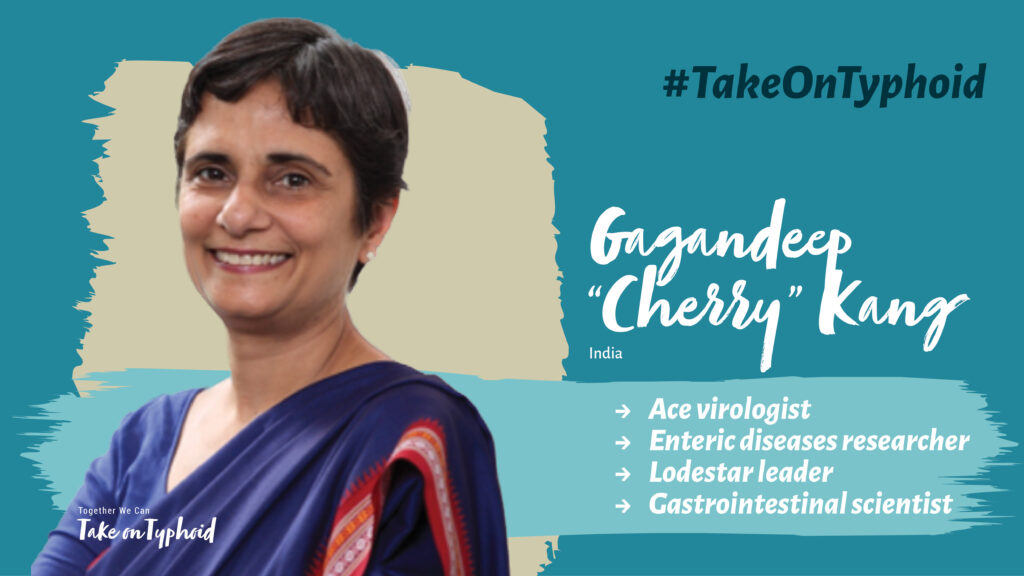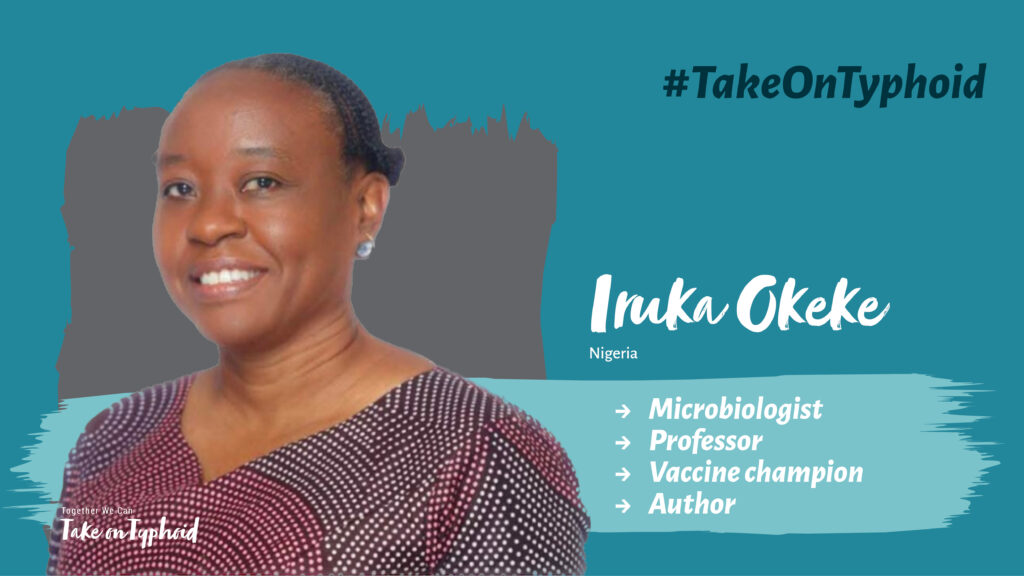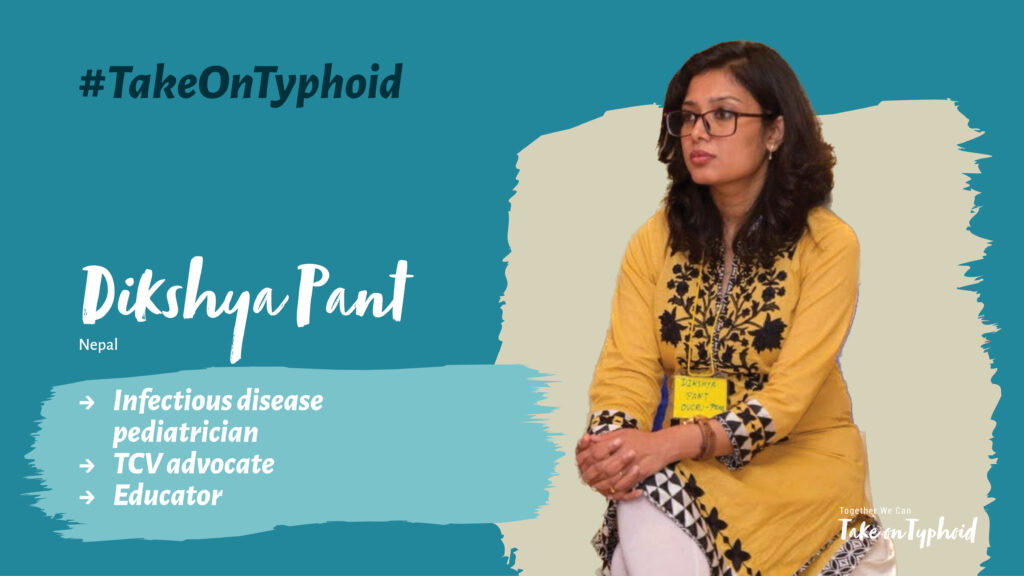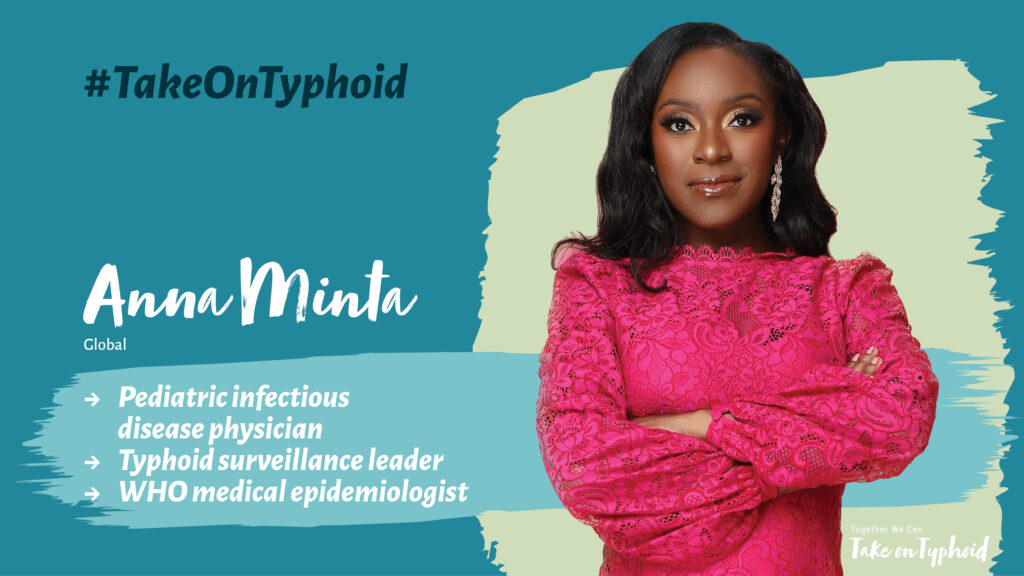For International Women’s Day this year, we are celebrating some of the women who have dedicated their careers to take on typhoid. They are extraordinary researchers, scientists, doctors, global experts, and vaccine champions. Today, we celebrate their accomplishments and contributions to the typhoid and global health fields. We celebrate their contributions to the milestones we’ve reached thus far and the passion they bring to the work ahead. In honor of this year’s International Women’s Day focus on equity, we gathered their thoughts on gender equity and what it means to each of them.
Gagandeep “Cherry” Kang: Leader, virologist, gastrointestinal scientist | India
What does gender equity mean to you?
“Gender equity is ensuring that everyone everywhere can reach their full potential.”
What progress have you seen in gender equity in your career?
“The proportion of young, educated women ready to stand up for themselves and their ambitions has increased over time, and that is a trajectory to maintain and accelerate.”
Iruka Okeke: Microbiologist, author, professor, vaccine champion | Nigeria
Why is diversity in the workplace important?
“The ‘industry’ in science is discovery. The more different ways of thinking you seat at a table, the greater the chance that you will rise with a novel idea. When we welcome people with different backgrounds, training, and skills, they bring in fodder for new ideas because they can see perspectives that may be invisible to others. And when people see someone working in discovery science that has had some of their experiences, they will be more willing to consider coming to the table themselves.”
How do you plan to embrace gender equity going forward?
“I moved back to Nigeria set up a research group almost a decade ago and will continue along this very privileged path of doing excellent science with a diverse range of trainees and collaborators. I’m looking forward to having my first generation of Nigerian trainees build their own groups that hopefully will broaden access to science much more. There is a lot more we can do to make workplaces, including scientific workplaces more hospitable for, and welcoming to, everyone.”
Diksha Pant: Pediatrician, TCV advocate, educator | Nepal
What does gender equity mean to you?
“Women have fought with society, physical differences, and lack of adequate opportunities in comparison to men. Gender equity means providing platforms and support systems to compensate for physical differences and disadvantages women have endured over the ages. Appreciation, encouragement, and promotion of talent and hard work without a bias to gender leads to gender equity.”
Anna Minta: Physician, typhoid surveillance leader, WHO medical epidemiologist | Global
Please join us as we celebrate these women, their contributions to the typhoid field, and their commitment to gender equity today and every day!
Cover photo: Two women prepare typhoid conjugate vaccine vials for use in a study in Nepal. Credit: Bill & Melinda Gates Foundation/Sam Reinders.

